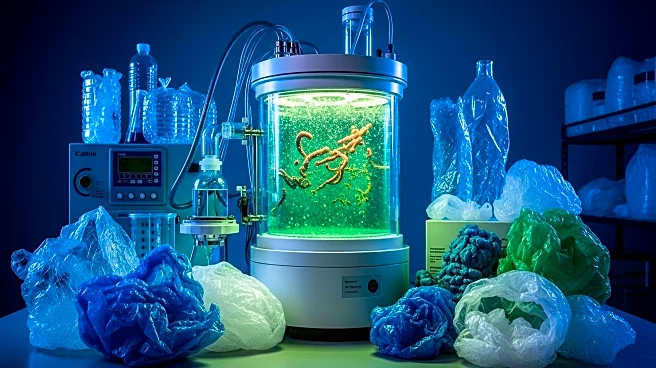What's Happening?
A team of scientists led by Professor Stephen Wallace at the University of Edinburgh has successfully genetically engineered the bacterium E. coli to transform a plastic-derived molecule into paracetamol, a widely used painkiller. This innovative approach leverages the fast-growing and easily engineered nature of E. coli, which has been a staple in biotechnology for decades. The bacterium, known for its role in producing insulin and vanilla flavoring, is now being utilized to address the global plastic waste crisis by converting waste into valuable medicinal products.
Why It's Important?
This breakthrough represents a significant advancement in biotechnology and environmental sustainability. By converting plastic waste into paracetamol, scientists are addressing two major global challenges: plastic pollution and pharmaceutical production. This method could reduce the environmental impact of plastic waste while providing a sustainable source of essential medicines. The use of E. coli in this process highlights the potential of microbial innovation in solving complex environmental and health issues, potentially leading to more sustainable industrial practices.
What's Next?
The research opens the door for further exploration into microbial solutions for waste conversion. Scientists may investigate other bacteria with unique capabilities to enhance sustainability efforts, such as Vibrio natriegens, which shows promise in accepting foreign DNA and addressing larger environmental challenges. Continued development in this field could lead to new applications, including the production of jet fuel from carbon dioxide and mining rare earth metals, expanding the scope of microbial biotechnology.
Beyond the Headlines
The use of genetically engineered microbes like E. coli raises ethical and safety considerations, particularly regarding the release of modified organisms into the environment. Long-term impacts on ecosystems and biodiversity must be carefully evaluated. Additionally, this innovation could shift the pharmaceutical industry towards more sustainable practices, potentially influencing regulatory policies and consumer expectations regarding environmental responsibility.









